Vocabulary Building Reading Fiction Worksheets for Ages 4-9
10 filtered results
-
From - To
Enhance your child’s reading experience with our engaging Vocabulary Building Reading Fiction Worksheets, designed specifically for ages 4-9. These worksheets combine fun, age-appropriate fiction stories with targeted exercises to broaden vocabulary skills and improve comprehension. By exploring diverse themes and characters, children not only build their word bank but also ignite their imagination and foster a love for reading. Each worksheet encourages critical thinking through questions and activities that support language development. Perfect for parents, educators, or home-school settings, our resources are effective tools to shape confident readers and eager learners. Discover the joy of learning with our vibrant and interactive materials today!
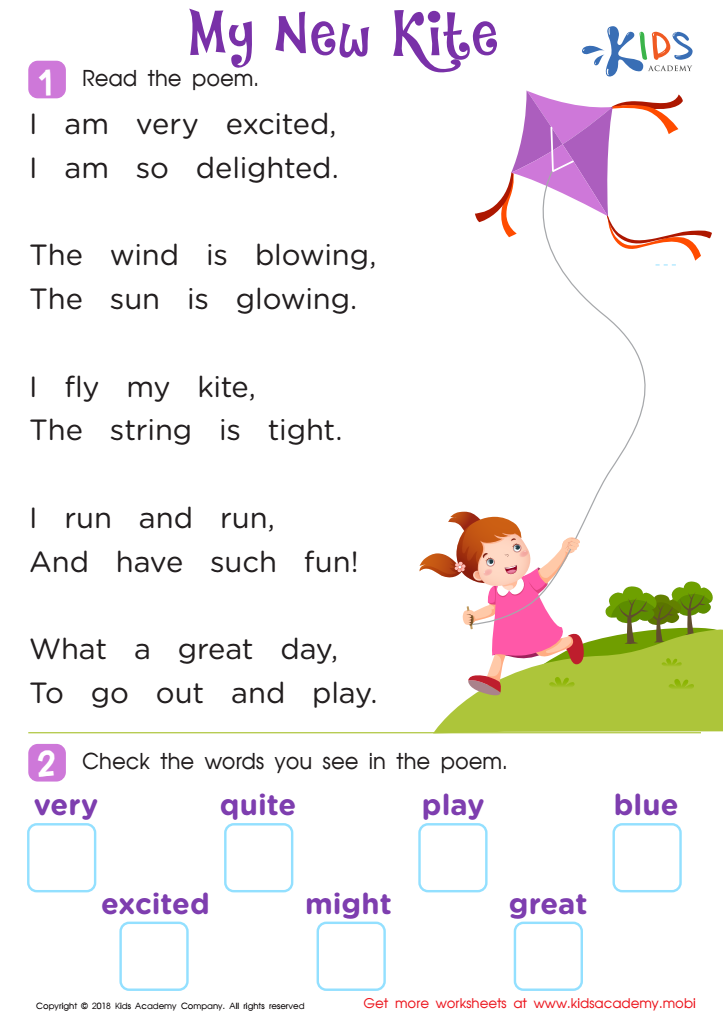

Poem: My New Kite Worksheet
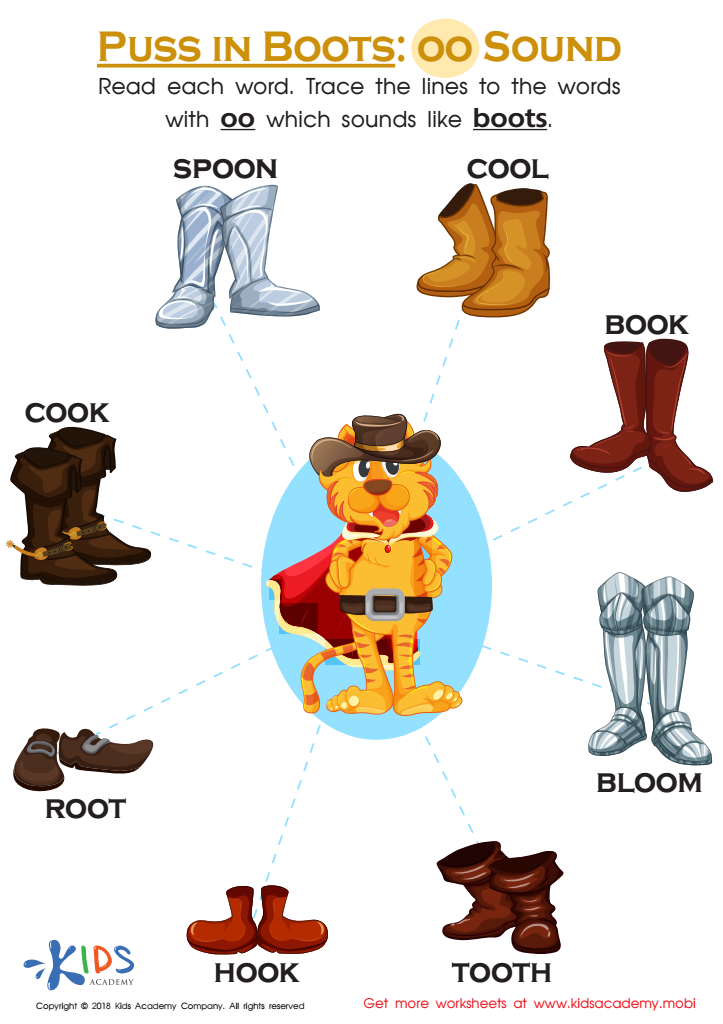

Puss in Boots: OO Sound Worksheet
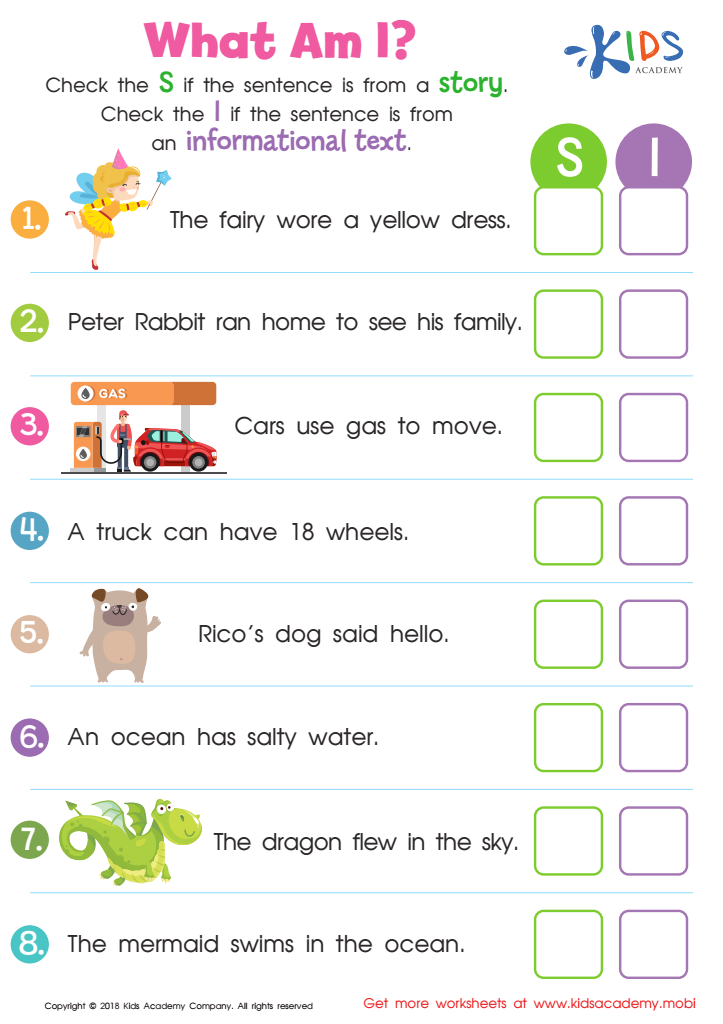

What Am I? Worksheet
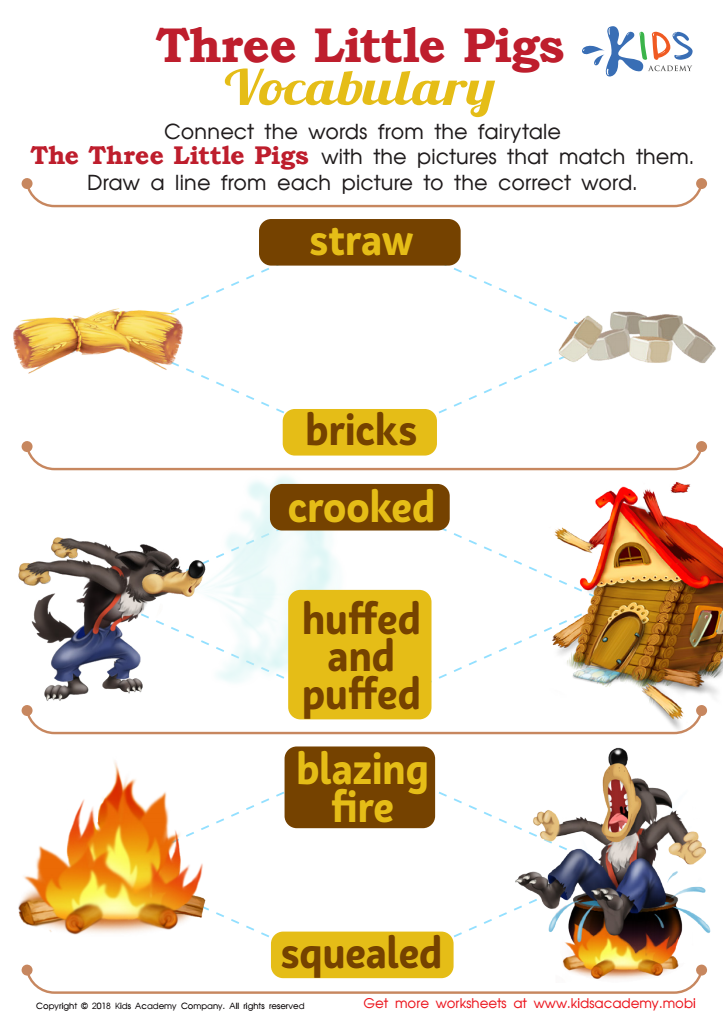

Three Little Pigs Vocabulary Worksheet
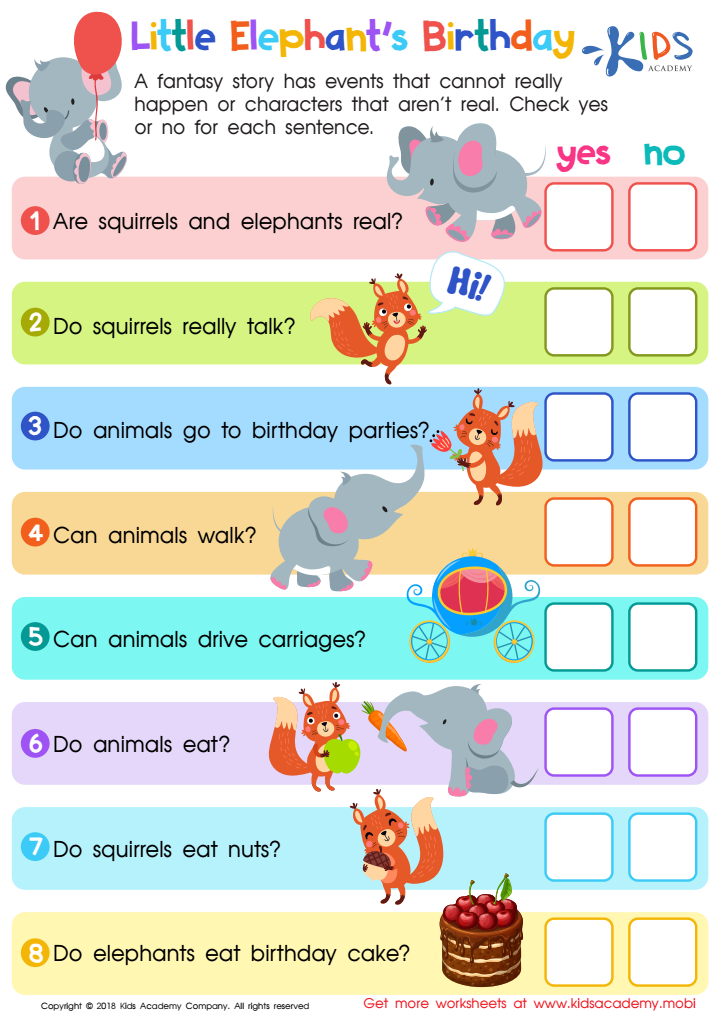

Little Elephant's Birthday Worksheet
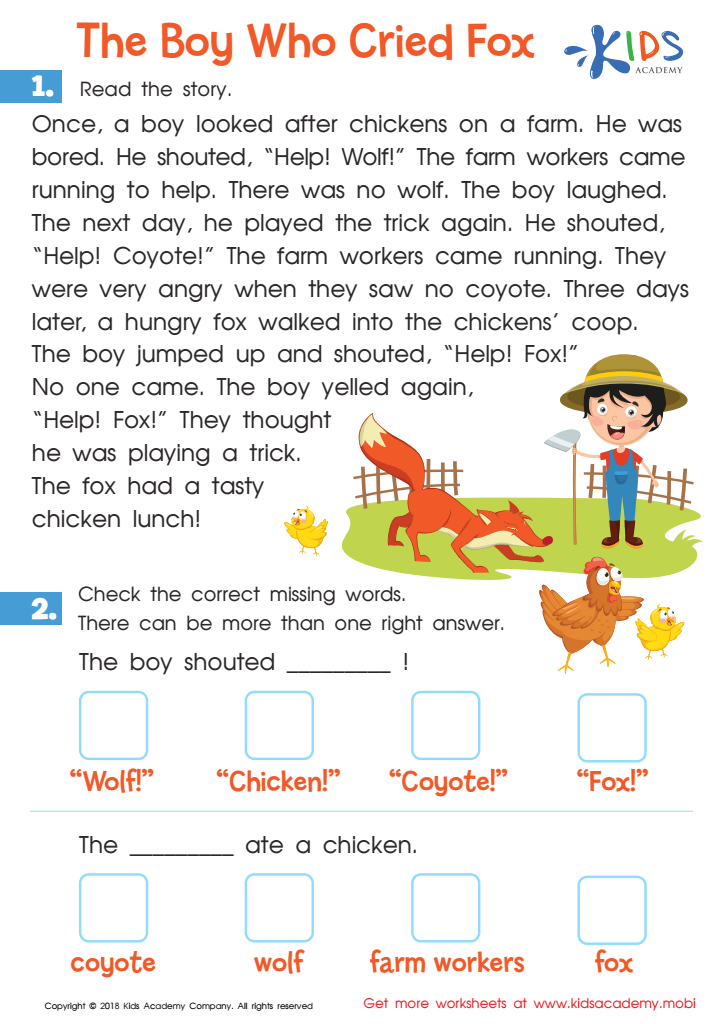

The Boy Who Cried Fox Worksheet
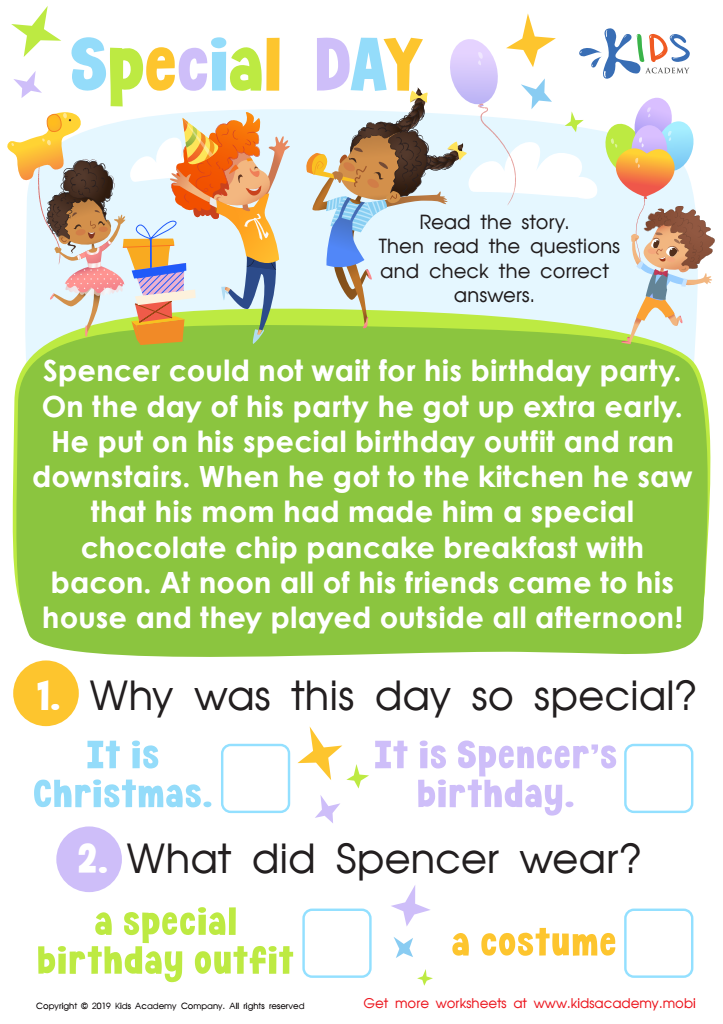

Special Day Worksheet
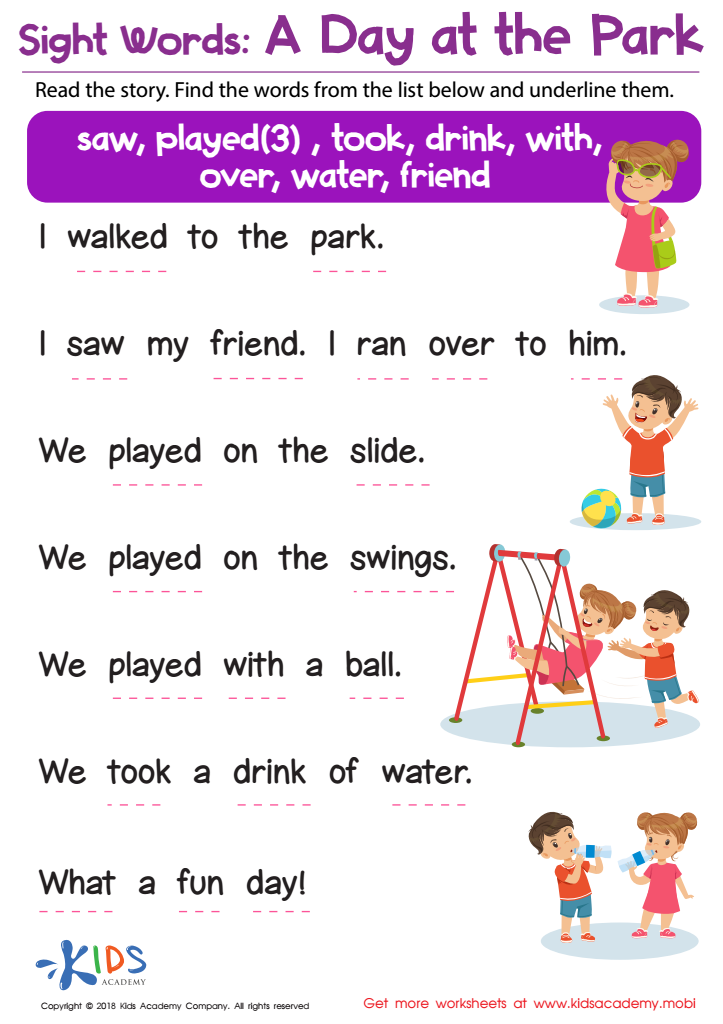

Sight Words: A Day at the Park Worksheet
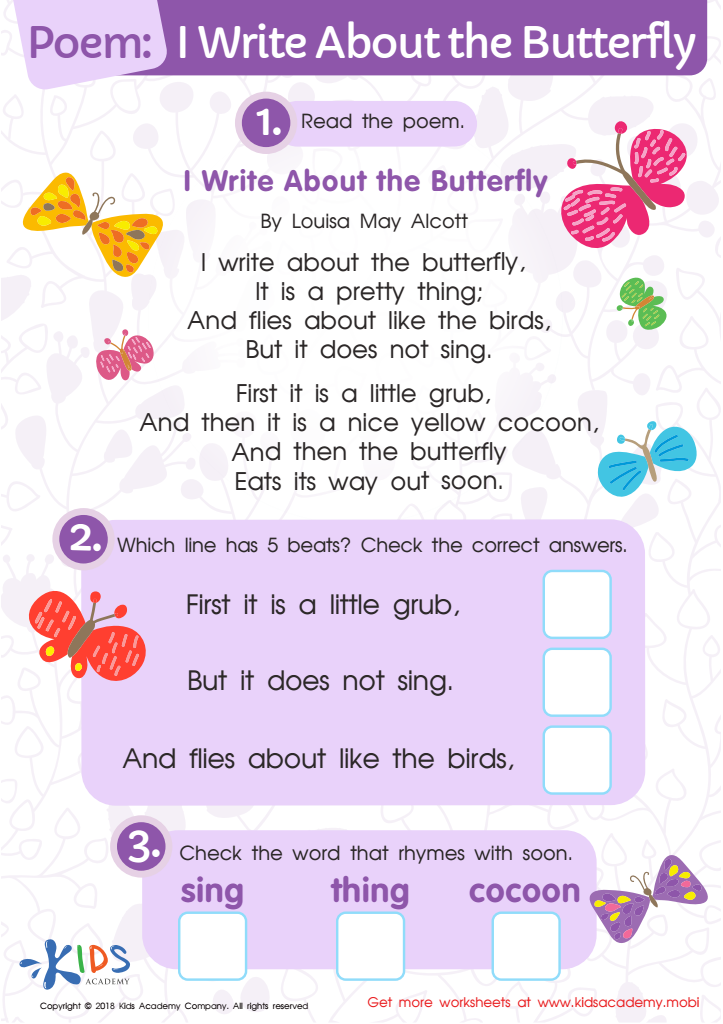

Poem: I Write About The Butterfly Worksheet
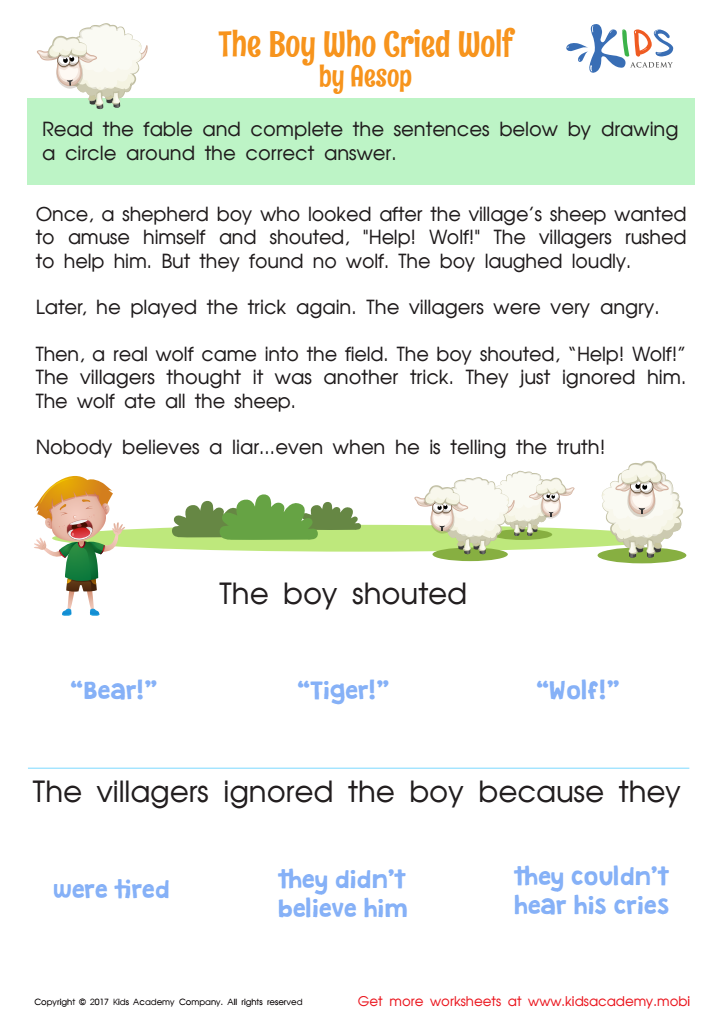

The Boy Who Cried Wolf Worksheet
Vocabulary building through reading fiction is crucial for children aged 4-9, as it lays the foundation for effective communication, comprehension, and critical thinking. At this age, children's brains are highly adaptable, making them especially receptive to new words and concepts. By exposing them to a rich variety of vocabulary within engaging narratives, parents and teachers can foster a love for reading and an appreciation for language.
Fictional stories introduce children to diverse settings, characters, and experiences, enabling them to understand and express emotions and ideas beyond their immediate context. This not only enriches their vocabulary but also sparks their imagination and creativity. As children encounter new words in context, they develop better comprehension skills, allowing them to grasp text at deeper levels and become more confident readers.
Furthermore, a strong vocabulary enhances academic performance across subjects, as language skills are integral to understanding math, science, and social studies. Encouraging vocabulary building through reading fiction also nurtures critical thinking by prompting debates and discussions, promoting social interaction, and strengthening relationships between parents, children, and educators. In summary, prioritizing vocabulary development through fiction empowers children with lifelong communication skills and fuels their intellectual growth.

 Assign to My Students
Assign to My Students











.jpg)











